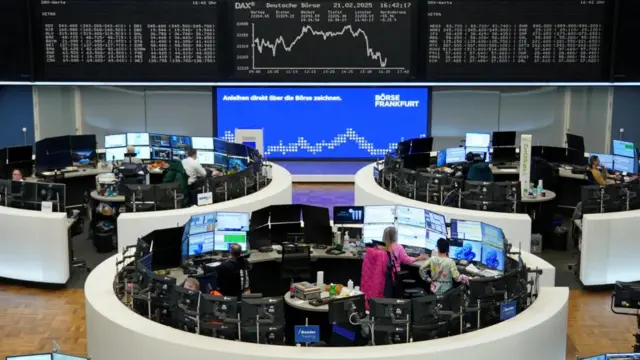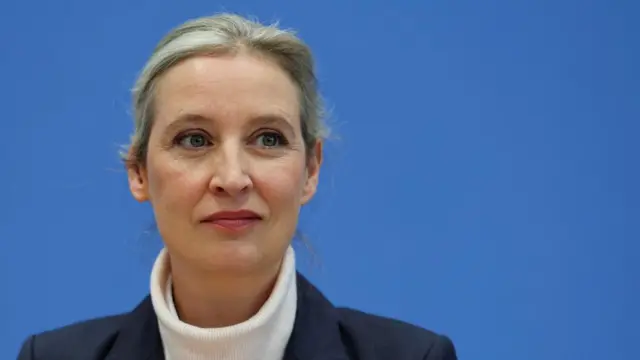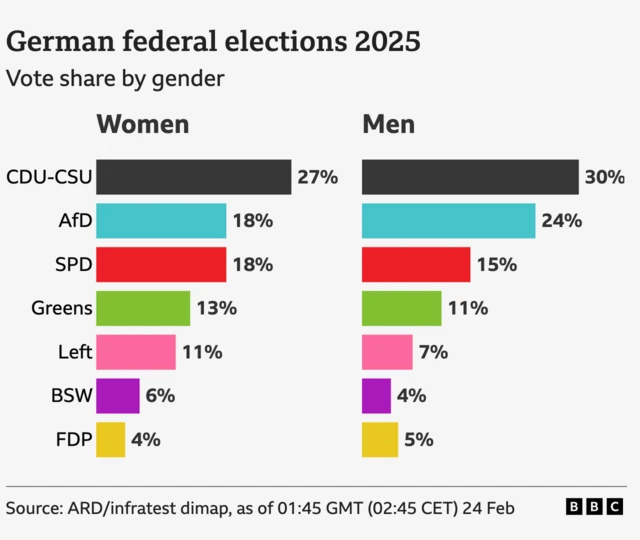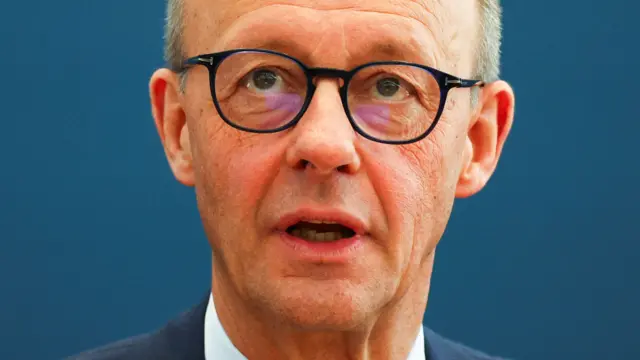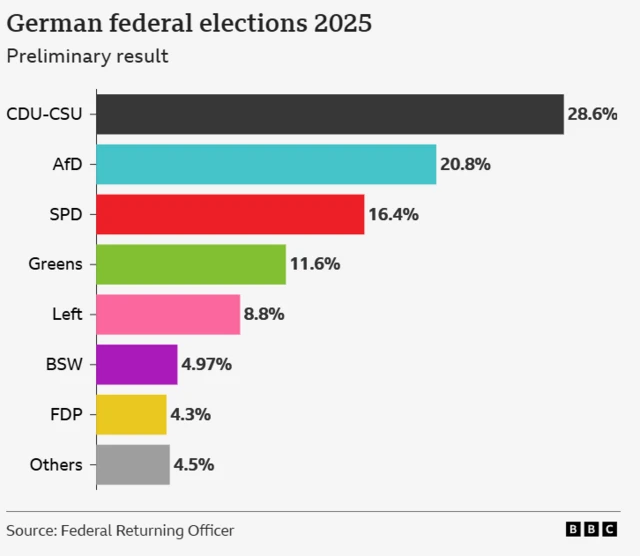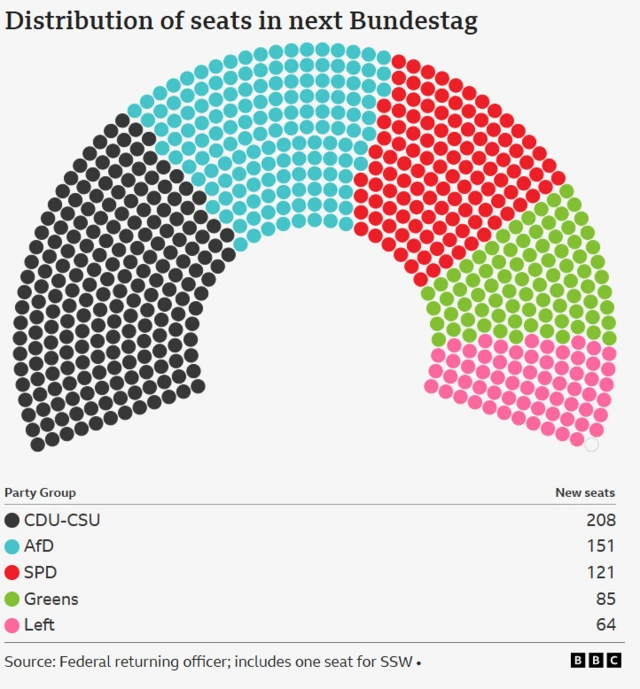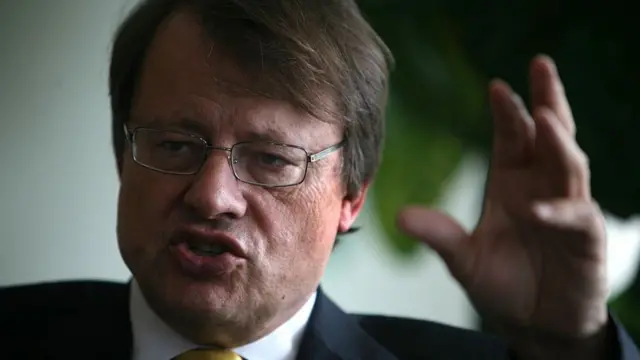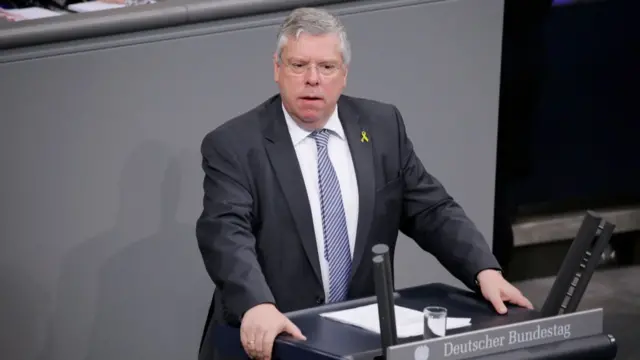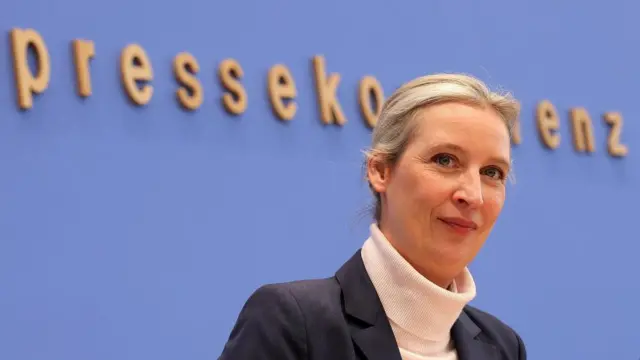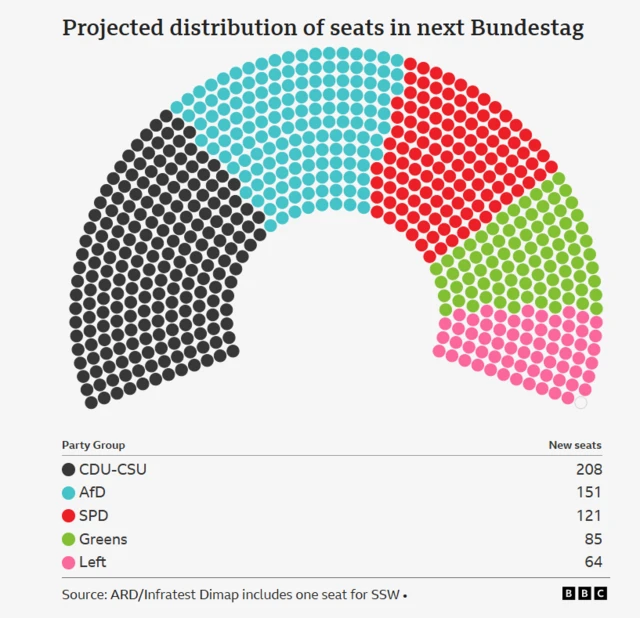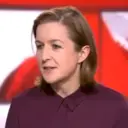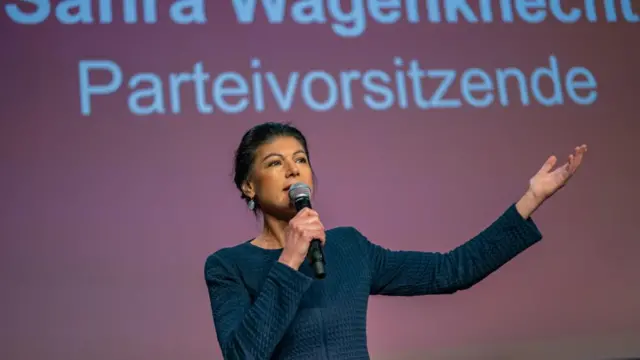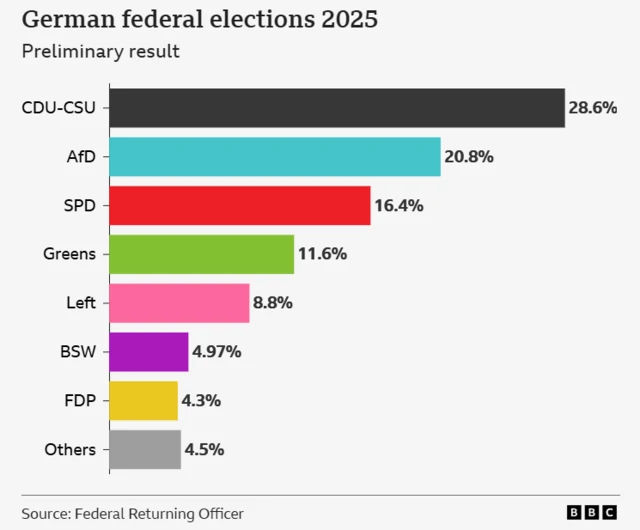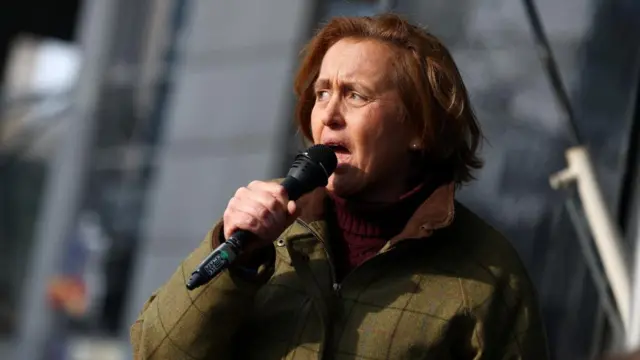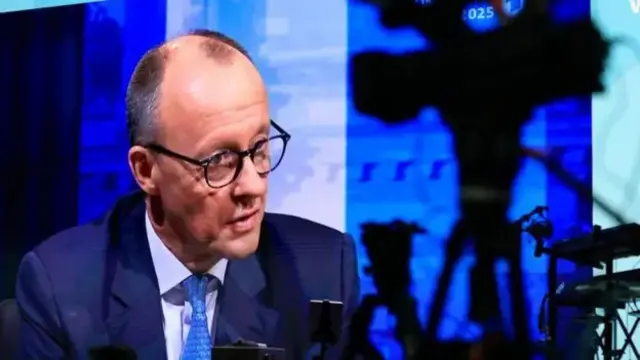Why the AfD are called far rightpublished at 12:03 GMT 24 February
 Paul Kirby
Paul Kirby
Europe digital editor, reporting from Berlin
One in five Germans voted for the Alternative for Germany (AfD) in Sunday’s election, a party which media outlets, including the BBC, describe as far right.
Despite coming second, the AfD is blocked from being part of the next government because of a policy of non-cooperation by other parties, known as the "firewall" – or brandmauer – which has been in place since the end of World War Two.
The AfD’s leader Alice Weidel insists it's a libertarian, conservative movement, not racist. The other main German parties disagree and view the AfD as extremist.
In May 2024, a German court rejected an AfD appeal against a ruling classifying it as a suspected far-right extremist organisation. Judges found that the AfD had "positions that disparage the democratic order and are incompatible with the principle of democracy", external.
In three German states in the east - Thuringia, Saxony-Anhalt and Saxony - domestic intelligence has designated the AfD as right-wing extremist.
A leading AfD figure in Thuringia, Björn Höcke, has twice been convicted of using a banned Nazi slogan "Alles für Deutschland" - everything for Germany. Alice Weidel supporters have chanted her name during the election campaign, using the phrase "Alice für Deutschland".



